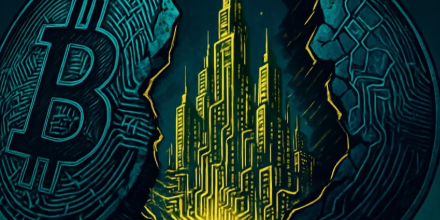Senator Lummis Bill forces federal agencies to confront crypto’s role in wealth building
Senator Lummis is dragging federal housing agencies into the 21st century with a bill that mandates crypto be recognized in mortgage approvals. The move challenges decades-old lending rules, potentially opening doors for young buyers, but critics warn it could destabilize the system.
- Senator Cynthia Lummis introduced a bill requiring Fannie Mae and Freddie Mac to recognize crypto assets in mortgage evaluations.
- The 21st Century Mortgage Act targets outdated lending criteria and responds to low homeownership rates among Americans under 35.
- Critics, including Senators Warren and Sanders, argue the move could inject risk into the housing market due to crypto volatility
On July 29, U.S. Senator Cynthia Lummis introduced the 21st Century Mortgage Act, a bill that would require Fannie Mae and Freddie Mac to factor cryptocurrency into single-family mortgage evaluations.
The proposal codifies a recent directive from Federal Housing Finance Agency Director William Pulte and would formally instruct the two government-sponsored enterprises to consider digital assets held on public blockchains as part of borrowers’ financial profiles, without requiring conversion into U.S. dollars.
According to Lummis, the legislation aims to modernize mortgage eligibility criteria to reflect how an increasing number of younger Americans store and grow their wealth.
Why crypto could be the missing piece in America’s homeownership crisis
Senator Lummis’ push to include crypto in mortgage assessments is a direct response to a generational wealth gap that has left millions of young Americans locked out of homeownership. With U.S. Census Bureau data showing just 36.6% of adults under 35 own homes, the lowest rate since tracking began in 1982, traditional paths to property ownership are failing.
Meanwhile, digital assets have emerged as a primary wealth-building tool for this same demographic, with 21% of U.S. adults now holding cryptocurrency, and 67% of those investors under 45.
“The American dream of homeownership is not a reality for many young people,” Lummis said. “This legislation embraces an innovative path to wealth-building keeping in mind the growing number of young Americans who possess digital assets. We’re living in a digital age, and rather than punishing innovation, government agencies must evolve to meet the needs of a modern, forward-thinking generation.”
But while Lummis frames the move as financial progress, Democratic lawmakers see it as a gamble. Senator Elizabeth Warren, Bernie Sanders, and others warned in a letter to Pulte that allowing volatile digital assets into mortgage underwriting could “pose risks to the stability of the housing market and the financial system.”
Disclaimer: The content of this article solely reflects the author's opinion and does not represent the platform in any capacity. This article is not intended to serve as a reference for making investment decisions.
You may also like
MicroStrategy splurges $800 million, Harvard’s holdings surge 200%: Are whales bottom-fishing or is this the prelude to a bull trap?
MicroStrategy and Harvard University increased their positions against the trend during the bitcoin market correction—MicroStrategy purchased 8,178 bitcoins, and Harvard increased its holdings in BlackRock’s bitcoin ETF. The market shows a pattern of retail investors selling while institutions are buying, but the scale of institutional accumulation is difficult to offset the pressure from ETF capital outflows. Summary generated by Mars AI This summary was generated by the Mars AI model, and its accuracy and completeness are still being iteratively updated.

Rebuilding Order Amid Crypto Chaos: Where Will the Next Wave of Liquidity Come From?
Jesse Pollak Launches Controversial JESSE Coin on Base App
In Brief Jesse Pollak's JESSE coin is set to launch through the Base App. Pollak warns against scams and ensures only official announcements are credible. The launch reignites debate on digital identity and security in decentralized protocols.

